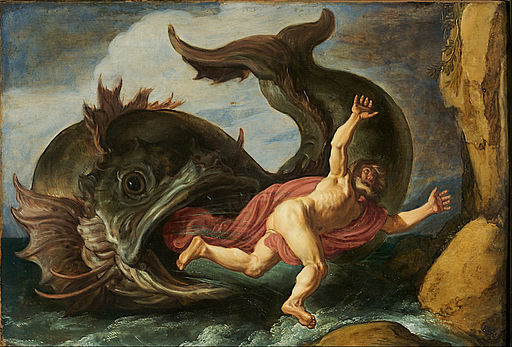When the reluctant and cranky prophet Yonah emerged from his three day incarceration inside a whale, his prayer for his personal salvation had been answered. He was alive! .This time he didn’t run away to Tarshish, he went straight to Nineveh. Now Nineveh was a city full of cruelty and evil ways. Following God’s directive Yonah roamed the city yelling “In forty days, Nineveh will be overthrown”(Yonah 3:4) Unbelievably, in a grassroots outpouring, the people of Nineveh listened to Yonah. The King of Nineveh himself, threw off his royal garments and joined his people, donning sackcloth and fasting. They honestly repented and were saved from total destruction.
What made the people of Nineveh listen to Yonah? Was it how or what he said? Did his ordeal in the whale shake him up and increase his zeal? Did he have a beatific aura or a putrid foul whale odor surrounding him that caught the attention and impressed the citizens of Nineveh? Or were the people of Nineveh at a unique tipping point where they saw that their life style was morally bankrupt and absolutely unsustainable?
Why can’t we be like the people of Nineveh? Why can’t we listen? So many prophets have been sent our way. Weather reporters, prose writers, poets, actors, research scientists, politicians, and activists, have all walked through our cities and towns telling us “You are destroying your world, you treat it like a garbage can, you fill your water with toxins and your air with smog. Stop! Repent! This world, your home, is in danger.” From John Muir to Rachel Carson to Barry Commoner to Al Gore and Greta Thunberg and so many more, they’ve warned us. Was Yonah’s voice so much more compelling and were Nineveh’s citizens so much more receptive to the call to repent?
We live in a tough world. It is hard to listen to a voice of doom when your eye is on the bottom line and profits are up. It is hard to focus when our attention is ping-ponged with so many serious social issues and you live in a turducken of climate change inside a pandemic inside systemic racial and economic injustice. It is hard to change our habits when for the past 60 or so years we have been sold the idea of ultimate convenience, with a grocery cart of single use items tempting us. It is hard to connect the dots and to consider what the consequences of our everyday choices and actions are. It is hard to untangle the wires of personal, corporate and public responsibility.
The great thing, the amazing thing about the story of Yonah is that everyone in the city repented. The regular citizens led the way and the king followed. Everyone fasted, everyone donned sackcloth, even the animals and they all realized their evil ways and changed. This unity and single minded purpose saved their world. If only we could harness our energy, unify our strengths and work together, perhaps we could save our world.
